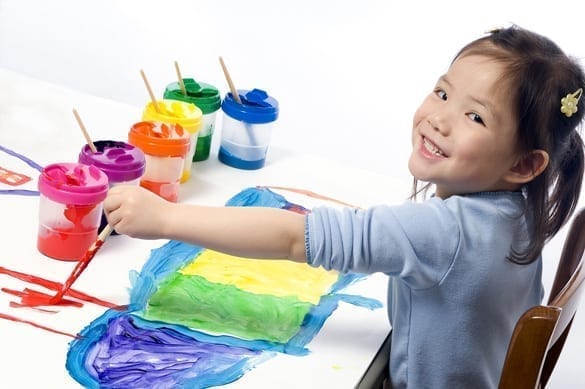
Play Therapy
Children think and act differently than adults do and, therefore, need a therapy model that meets them where they are developmentally. Until age 12, a child’s emotional development far outpaces their verbal development, explaining why most children struggle to verbally express how they feel. Our Play Therapists are specifically trained to help children express and process their emotions in the way that feels most natural: through play! Research shows that Play Therapy helps children to develop and improve their:
- Expression of thoughts and feelings
- Self-esteem & confidence
- Emotion regulation & mood
- Self-control & decision-making skills
- Creative problem-solving skills
- Stress management
- Ability to accept responsibility
- Social skills
Who Benefits from Play Therapy?
Children ages 3 to 12 years old who have behavioral, emotional, or social difficulties can benefit from play therapy, as well as children who have experienced trauma, abuse, or a significant life change. These issues may include, but are not limited to:
- Loss of a loved one
- Divorce of parents
- Moving & changing schools
- Blending of families
- Bullying and/or difficulty making friends
- Anger issues
- Disrespecting adults
- Trouble at school
- ADHD
- Developmental delays
Play therapy techniques can also be effectively used with teens, adults, and families, and the family is included as an integral part of the play therapy process.
What should I tell my child about why they are coming to Play Therapy?
Some children may wonder why they are coming to Play Therapy. If they ask questions, an appropriate response could be, “Sometimes it can help to have a special place just for you to share and play with someone you can trust.” You can tell your child that they will be meeting a “feelings helper,” or Play Therapist, who can help them with their feelings. Tell your child that the playroom is their very own special place where they can choose to play with lots of toys in many of the ways they would like to.
What is my role as a parent/guardian in the Play Therapy process?
Before meeting with your child, the Play Therapist will meet with you for a parent intake to discuss the initial concerns that bring your child to therapy and to gather more information. This will happen without your child present so that you can speak freely and so that your child does not feel “talked about.” Once the therapist begins to meet with your child, you will fill out an online Parent Report Form before your child’s sessions. This will keep your child’s therapist informed of what is happening both at home and school, as well as give you an opportunity to ask questions and share concerns. Additionally, you will meet with your child’s Play Therapist monthly either in person or over the phone for a parent session to discuss your child’s progress. The play therapist may provide recommendations for skills and tools you can implement at home.
Contact us to schedule an intake.











